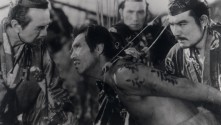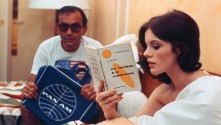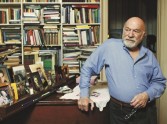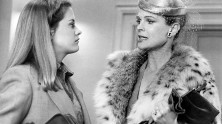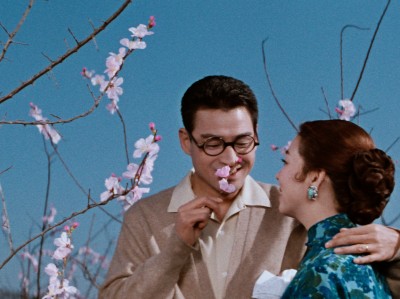
Ugetsu
(Ugetsu monogatari)
With Masayuki Mori, Machiko Kyo, Kinuyo Tanaka.
Japan, 1953, 35mm, color, 97 min.
Japanese with English subtitles.
Print source: HFA
[There is] a realm of the fantastic in which the distinction and issue of low versus high art, or marginal versus central art, precisely disappear, I mean the realm of cinema. What I have in mind here is not especially films of explicit magic or fantasy, the sort of things special effects are perfectly suited to. I have in mind rather film’s unaided perfect power to juxtapose fantasy and reality, to show their lacing as precisely not special. I once had occasion to put together a number of films constructed on the fantastic principle that the world of unyielding fact and the world of satisfied wish look the same, become juxtaposed without cinematic markings to set one world off from the other, creating in their viewers moments, I think one may say, of uncanny disorientation. [...] To these I added Mizoguchi’s Ugetsu, whose closing image is of a husband returned from a marvelous journey of the erotic to find his poor old house as he had left it, but empty. He lies down on the floor, curled like a child, and in the grey light his wife circles the room. We ache with the man for her to be real, for the beautifully familiar to succeed, or resucceed, the beautiful unfamiliar; but the stern, intermittent tap of a wood block wedges itself between time and eternity, and she vanishes. It is as great an image of the uncanny as I know on film. The experience of it scatters our always regrouping doubts about whether we are any long capable of that hesitation between the empirical and the supernatural on which the experience of the fantastic depends [...]. And we are reminded that the capacity to let fact and fantasy interpret one another is the basis at once of the soul’s sickness and of its health. – Stanley Cavell, “The Fantastic of Philosophy,” (1986) in Cavell on Film, ed. William Rothman

